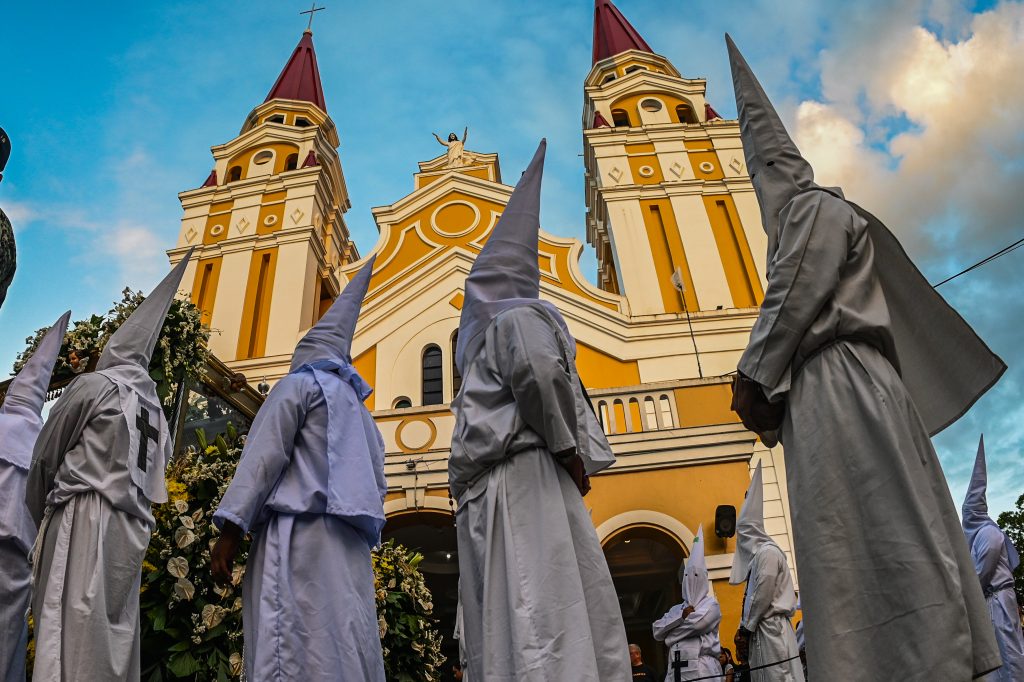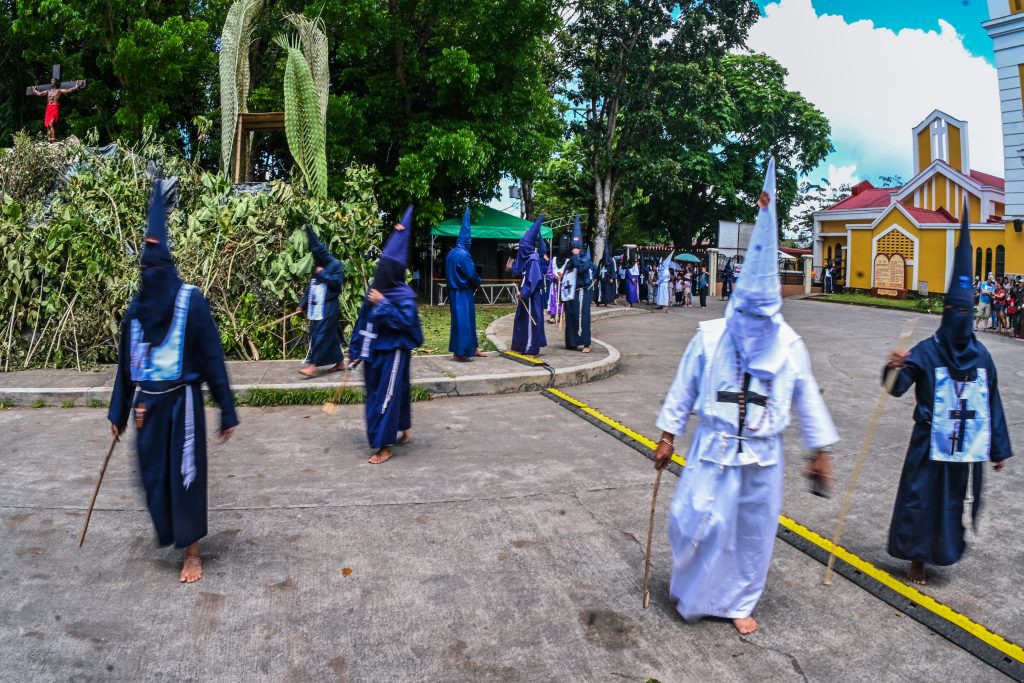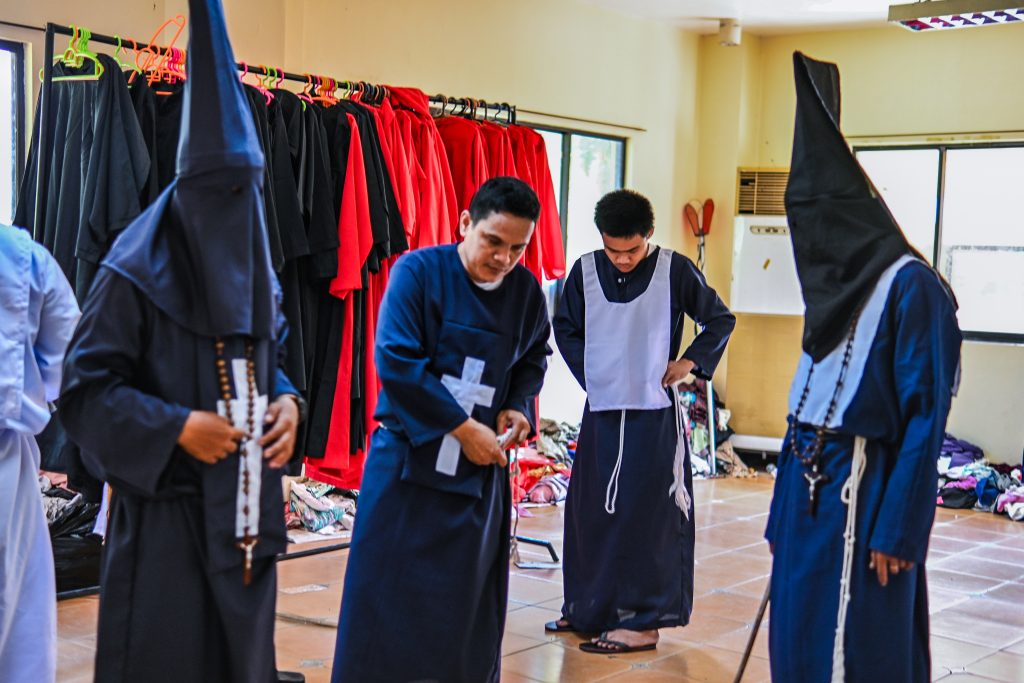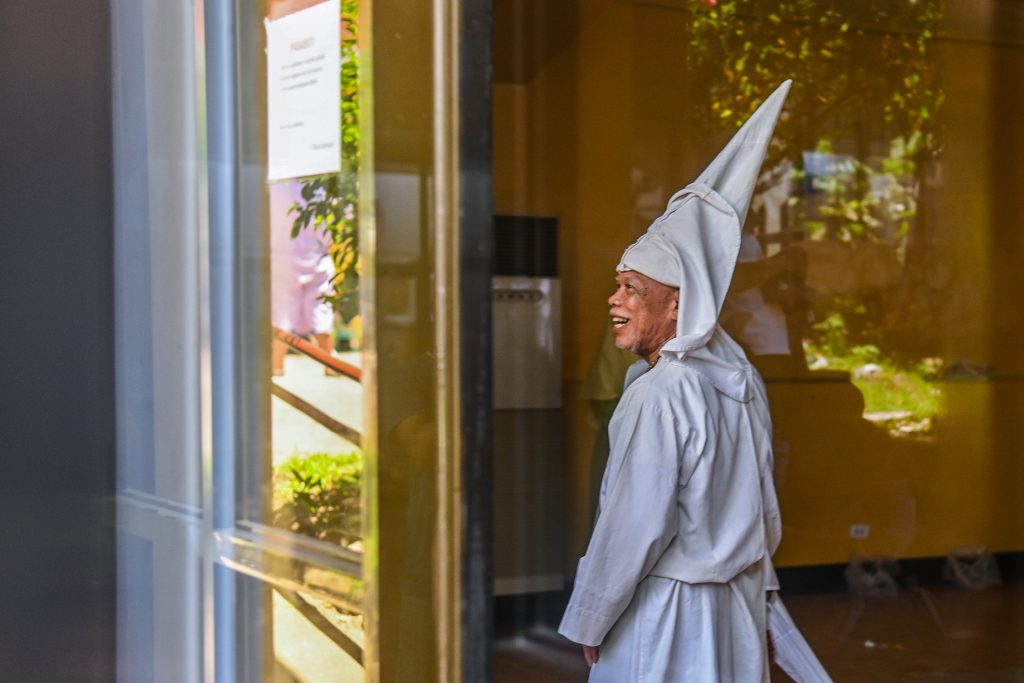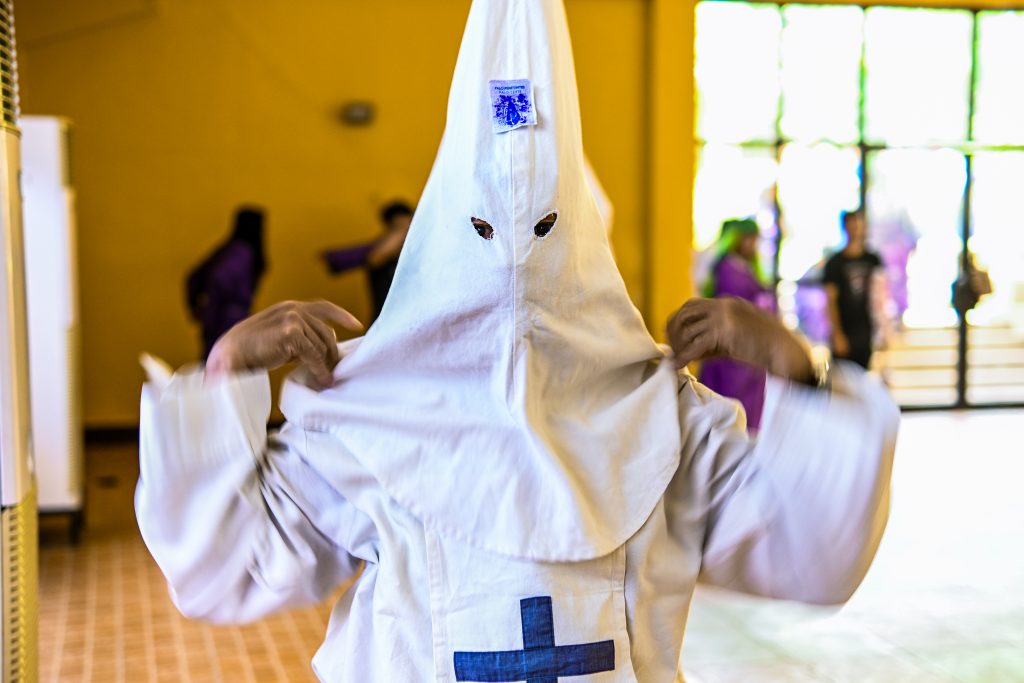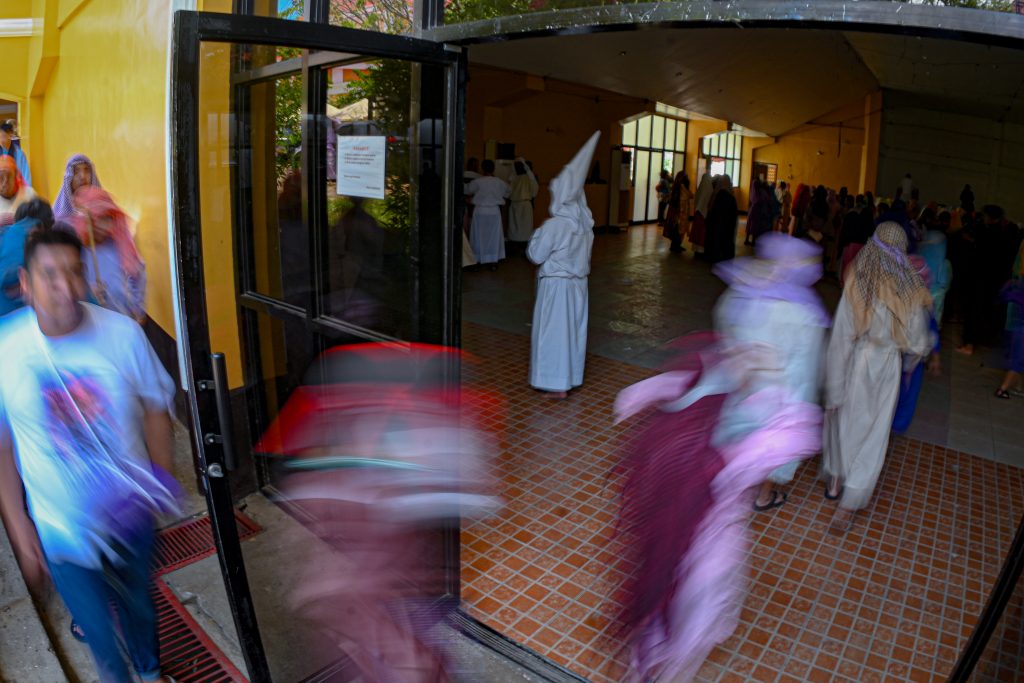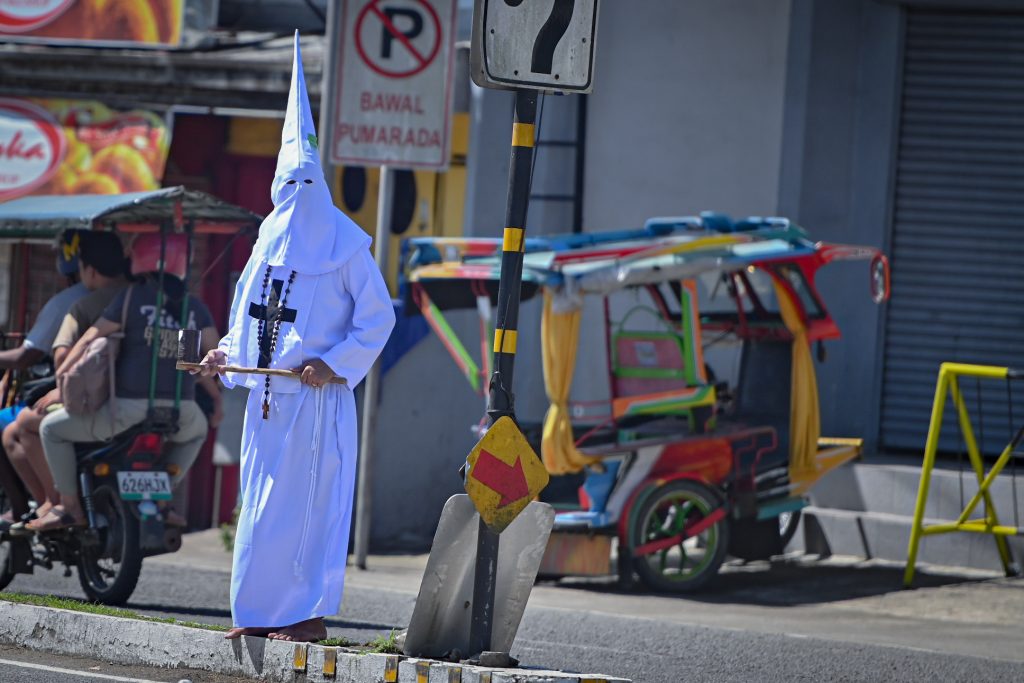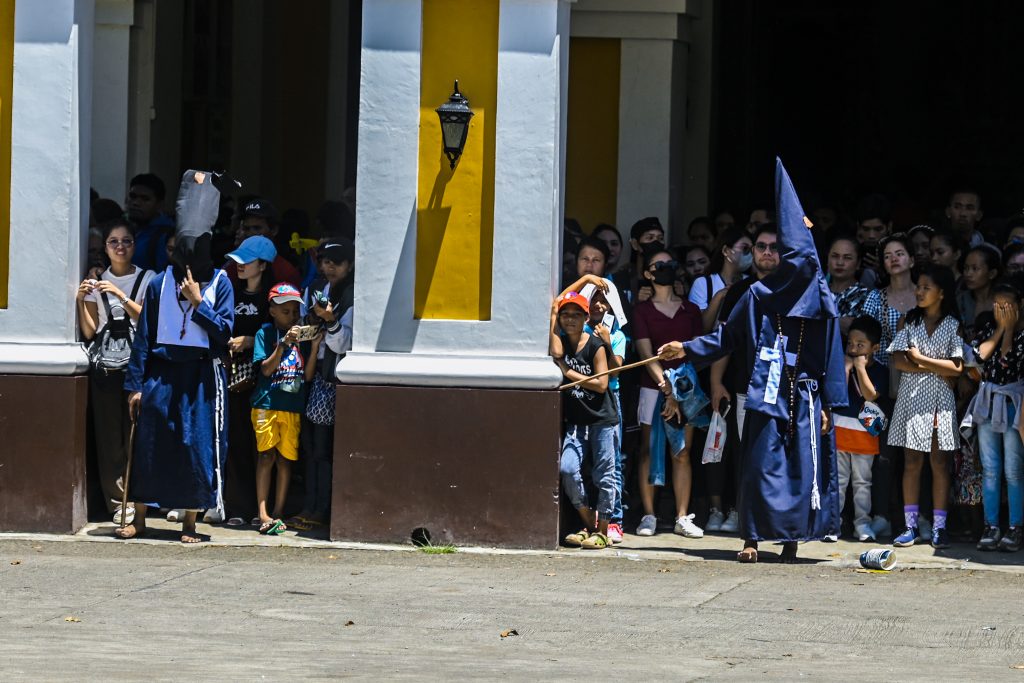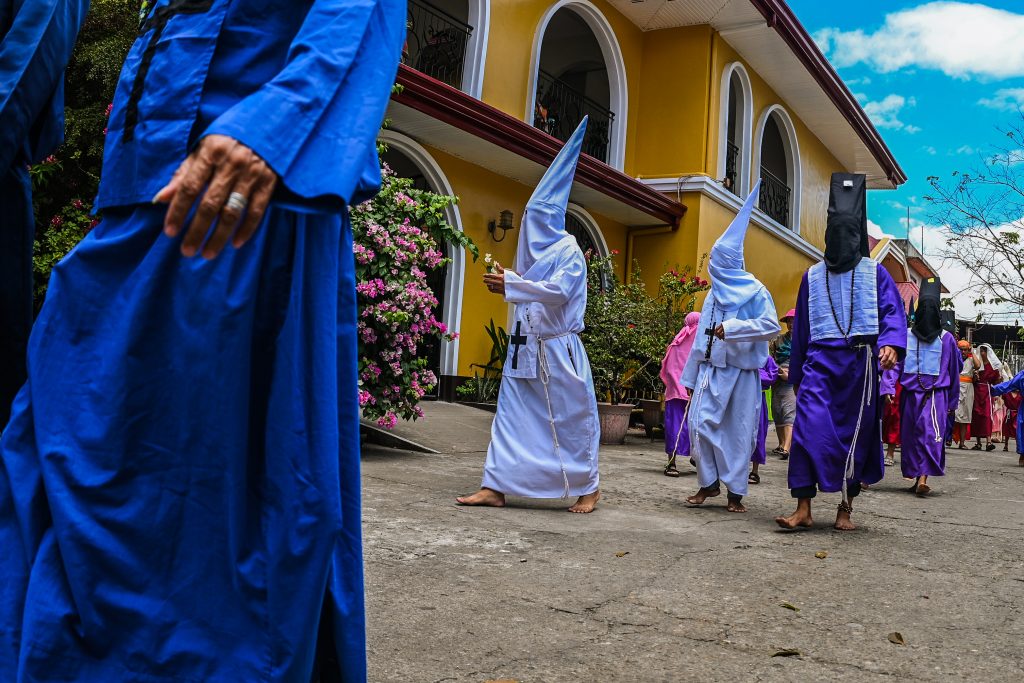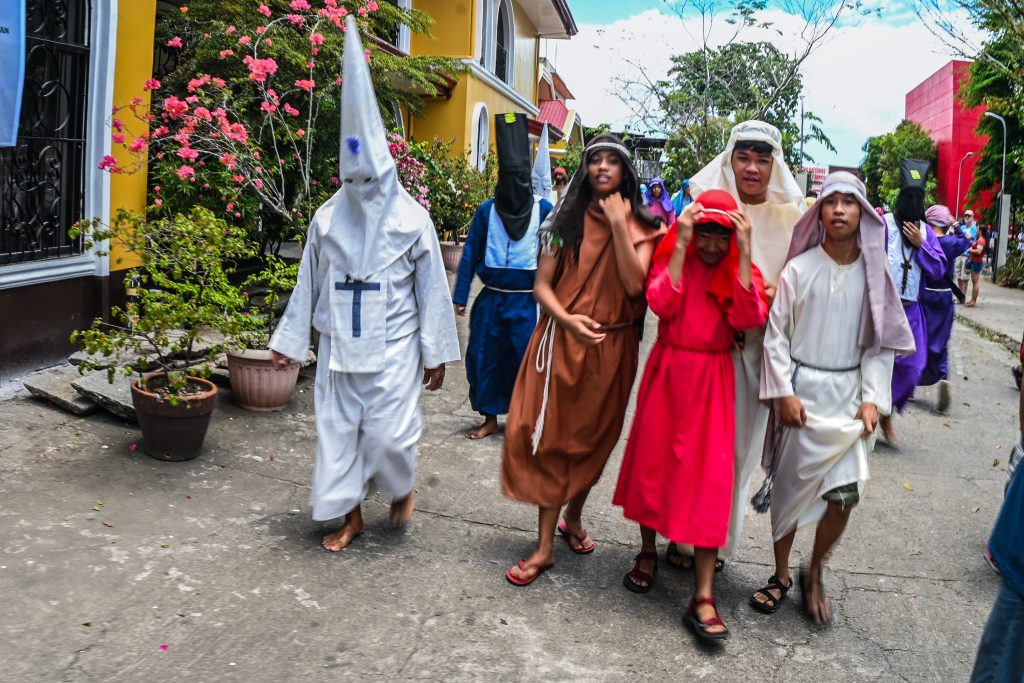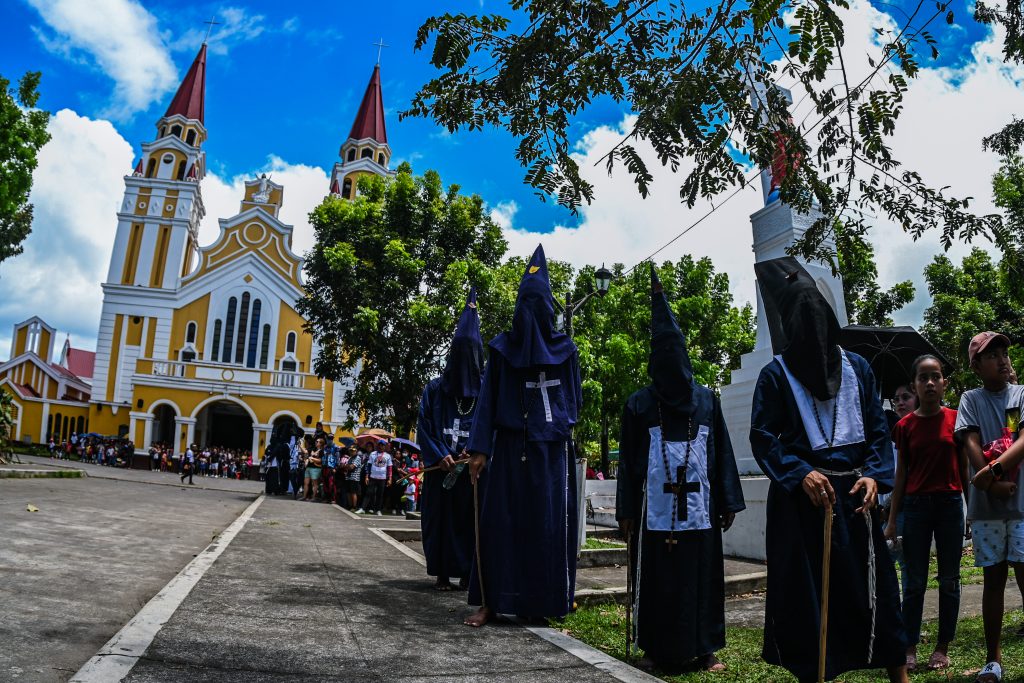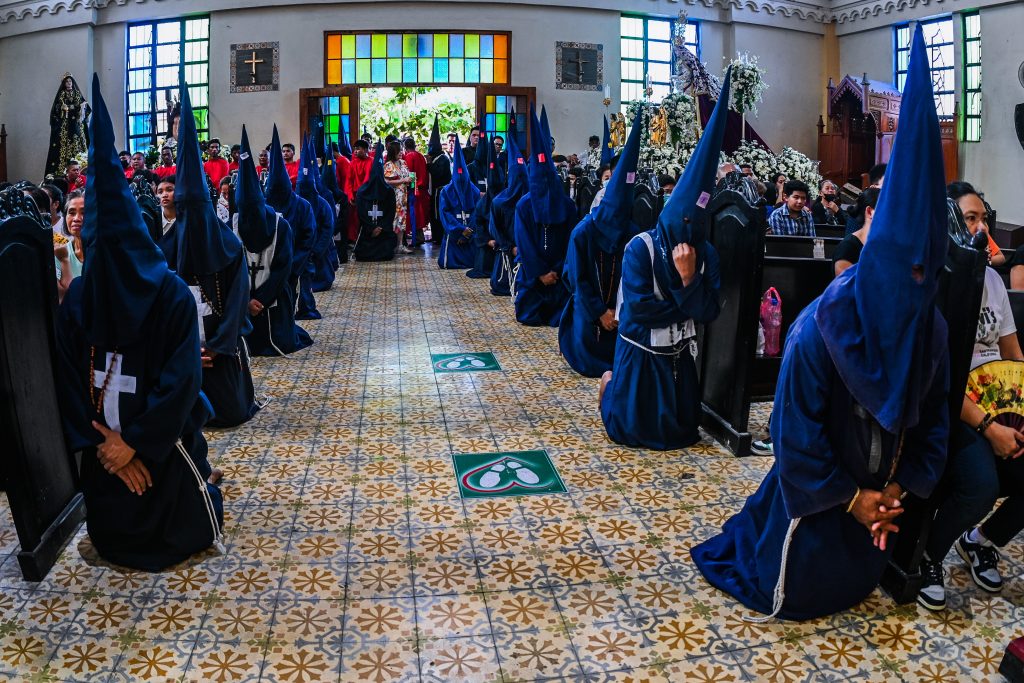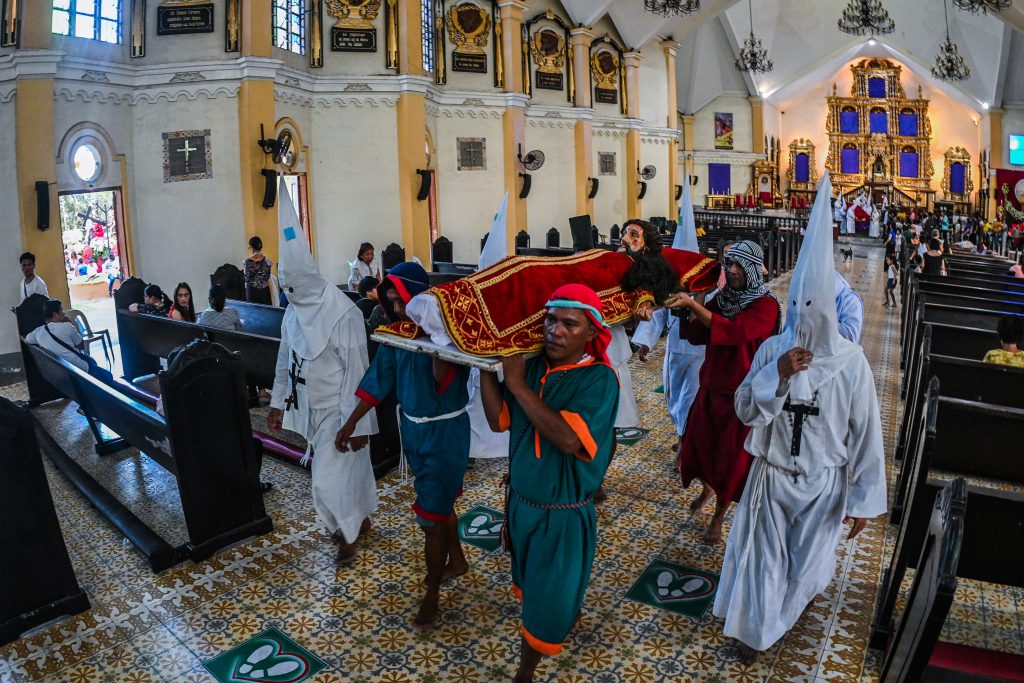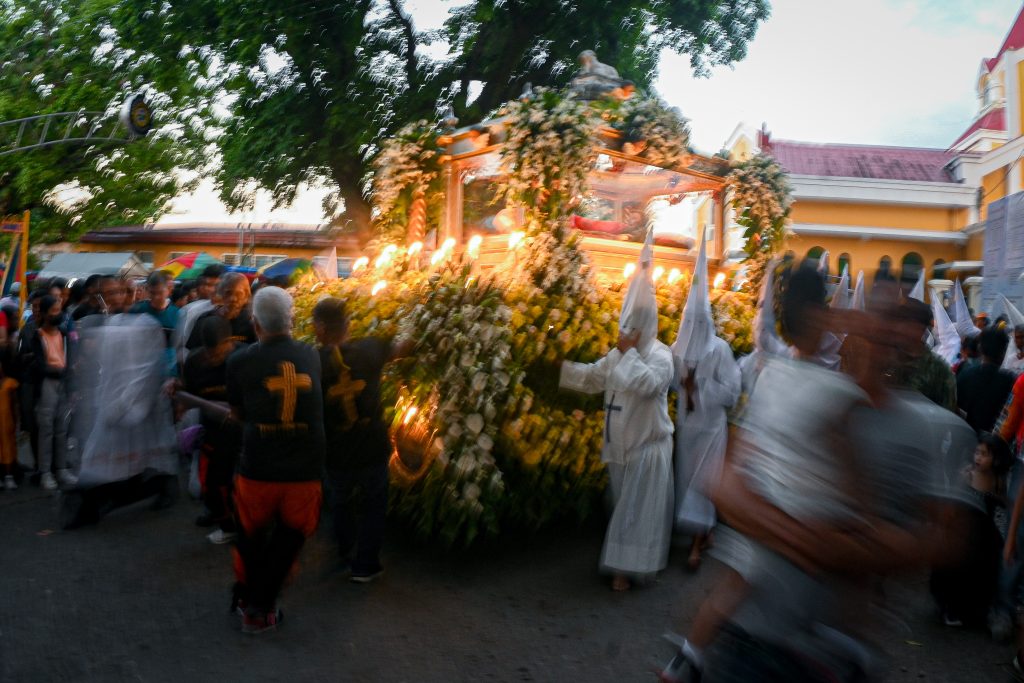Palo town in the central Philippine province of Leyte is distinguished by its vibrant Holy Week celebrations, which notably feature the Penitentes – men dressed in cone-shaped hoods that conceal their faces.
These devoted participants play an active role in church preparations, from Palm Sunday to Easter Sunday.
Over the years, Palo has drawn individuals from across the province, the region, the country, and even from abroad to partake in the week-long festivities of ‘Semana Santa’ or to witness the rich religious traditions that the people of Palo have cherished for generations.
Delfin Cobacha, 70, returns home from Manila every year to perform the Holy Week ritual and fulfill his devotion. “Since I joined the Penitentes during high school at 17, I’ve been committed,” he said.
The Palo Penitentes, an all-male confraternity, seek forgiveness, atonement, and penance for their sins through sacrifices and self-mortification. They dedicate themselves to genuine service to the church, particularly during Lent.
Fidelino Josol, a member of the Penitentes, explains that the term ‘Penitentes’ is derived from the Latin ‘paenitentia’ and the Spanish ‘los penitentes,’ both signifying sinners who express regret or remorse for their wrongdoings.
The ‘tais’ and ‘dupol’ carry distinct meanings within the group. Married members don navy blue ‘abitos’ with pointed hoods, signifying their status.
In contrast, bachelor or unmarried members wear violet or deep purple abitos with black, blunted hoods, known as dupol. Meanwhile, officers or senior members distinguish themselves by wearing all-white abitos with pointed hoods.
Historically, the Penitentes wore ‘Abito hin Pagkakablas’ or simply abito (Mendicant’s Habit), consisting of robes, hoods, rosaries, Cross insignias, and white woolen cords. These items were introduced by Fr. De la Fuente from Spain.
Presently, the confraternity includes over five hundred male residents of Palo among its members. Since 2004, it has been officially recognized by the Securities and Exchange Commission as a non-profit socio-religious organization.
The Penitentes continue to be a pivotal part of Palo’s religious heritage, culture, and traditions, with a legacy that promises to endure for many generations.
